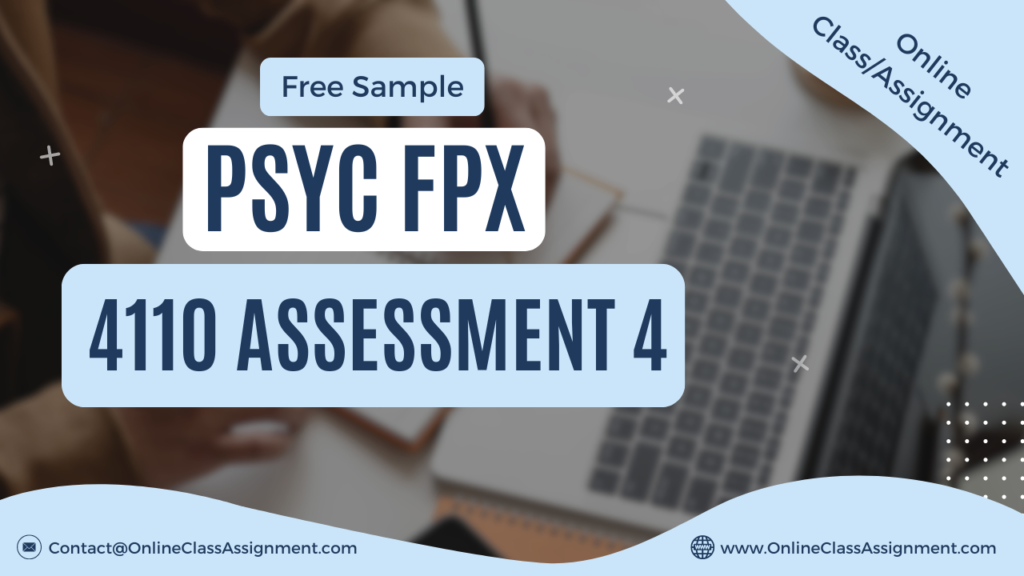PSYC FPX 4110 Assessment 4 Positive Psychology Applied to Educational Institutions

PSYC FPX 4110 Assessment 4 Positive Psychology Applied to Educational Institutions
Student Name
Capella University
PSYC FPX 4110 Positive Psychology
Prof. Name
Date
Introduction
School is an essential experience for everyone, and the structure of a typical school in the United States involves a principal overseeing classrooms, teachers imparting education, administrators enforcing rules, coaches providing guidance, and students engaging with their peers and educators. Each town or city has its own school district, divided by grade levels: elementary (Kindergarten through 5th grade), middle school (5th through 8th grade), and high school (9th through 12th grade). Following high school, students have the option to pursue college. The school environment plays a crucial role in shaping students’ mental and emotional development, emphasizing the importance of a positive, illuminating, and empowering setting.
Application of Positive PsychologyPositive Psychology, initiated by Martin Seligman and Mikhaly Csikszentmihalyi in 1998, focuses on enhancing human life satisfaction and fulfillment by nurturing strengths and virtues rather than solely addressing mental health issues. Seligman’s PERMA model identifies key elements for happiness and well-being: Positive emotions, Engagement, Relationships, Meaning, and Achievement. Creating a positive school environment is essential for students to thrive, fostering positive emotions, engagement in activities, meaningful relationships, and a sense of achievement.
Strengths and Weaknesses of Positive PsychologyIn schools, positive psychology programs allow students to understand and improve their character strengths, contributing to enhanced well-being. However, challenges exist, as some students may experience negative outcomes, such as aggression, depression, or anxiety, when pressured to identify and develop their character strengths. Additionally, individual strengths may be perceived differently by others, leading to misunderstandings.
Research Supporting the Application of Positive PsychologyThe increased focus on youth development has led to a growing body of research recognizing the importance of well-being in children and adolescents. Positive psychology-based programs in schools are gaining traction, with educators and professionals acknowledging the need to integrate them into curricula. Despite optimism about the effectiveness of such interventions, challenges related to resources, curriculum, information accessibility, teacher factors, and quality training need to be addressed for successful implementation.
ConclusionResearch studies consistently demonstrate the positive effects of applying positive psychology principles and character strengths within school settings. The incorporation of these principles into education not only benefits adults but also significantly impacts the lives of children. Positive psychology, with its emphasis on goal-setting, positive emotions, engagement, relationships, and achievements, influences not only present-day experiences but also future work, education, and family dynamics.
PSYC FPX 4110 Assessment 4 Positive Psychology Applied to Educational Institutions
References:Chodkiewicz, A. R., & Boyle, C. (2017). Positive psychology school‐based interventions: A reflection on current success and future directions. Rev Educ, 5, 60-86. doi:10.1002/rev3.3080
Gostrengths.com. (2012). What is PERMA? Retrieved from https://www.gostrengths.com/whatisperma/
Positive Psychology. (n.d.). In Alleydog.com’s online glossary. Retrieved from https://www.alleydog.com/glossary/definition-cit.php?term=Positive+Psychology
White, M. A., & Waters, L. E. (2015). A case study of “The Good School:” Examples of the use of Peterson’s strengths-based approach with students. The Journal of Positive Psychology, 10(1), 69-76. doi:10.1080/17439760.2014.920408
Get Capella University Free BS Psychology Samples
BIO FPX 1000
- BIO FPX 1000 Assessment 7 Media and Internet: Accurate vs Inaccurate
- BIO FPX 1000 Assessment 6 Patient Case Study Profiles – Cancer Causes
- BIO FPX 1000 Assessment 5 Genetics Lab
- BIO FPX 1000 Assessment 4 Digestion Lab
- BIO FPX 1000 Assessment 3 Urinary Lab
- BIO FPX 1000 Assessment 2 Neuromuscular Lab
- BIO FPX 1000 Assessment 1 Cardiovascular System Lab
COM FPX 1150
HIM FPX 4610
- HIM FPX 4610 Assessment 6 Health Topic Presentation
- HIM FPX 4610 Assessment 5 Discharge Summary: The Cardiorespiratory System
- HIM FPX 4610 Assessment 4 Operative Report: The Genitourinary System
- HIM FPX 4610 Assessment 3 Health Topic Approval
- HIM FPX 4610 Assessment 2 History and Physical (H&P): The Nervous System
- HIM FPX 4610 Assessment 1 Progress Note- The Skin
HIS FPX 1150
HUM FPX 1150
PSYC FPX 1000
PSYC FPX 2200
PSYC FPX 2300
